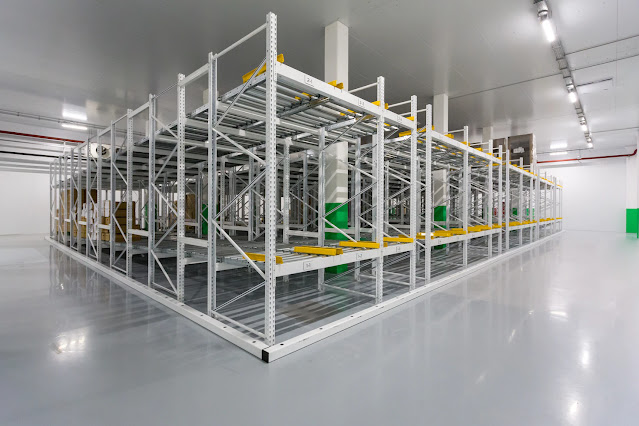What is resin flooring?
Resin flooring is the ideal flooring solution for industrial and commercial workplaces and this is because it is highly durable and reliable. This particular type of flooring can help keep the premises clean and bright. It is long lasting and can also be pleasing to the eye too.
The flooring is made by mixing resin and hardener. This material is usually either epoxy or polyurethane-based. It is then generally applied as an additional top layer to a concrete surface.
What are the different types of Resin Flooring?
-Epoxy Resin Flooring
Epoxy is a resin-based mixture that is applied to an existing base substrate. It is extremely durable and resistant to wear and tear. It is easy to maintain, resilient and can be applied in a number of different colours and patterns.
It is often used in factories, workshops, industrial settings and commercial locations such as restaurants and retail stores.
-Polyurethane Resin Flooring
Polyurethane resin flooring is made up of two substances: a resin and a hardener. These two substances then react and form a solid, durable surface. It is often used in industrial settings as it is hard-wearing and suitable for areas with heavy traffic. It is also resistant to chemicals and solvents, and can also withstand temperature fluctuations, making ir useful in settings such as commercial kitchens.
Perhaps you have heard about screed in your search for a suitable flooring, So just what is screed flooring? Screed is quite simply a thin, top layer of material laid over a concrete subfloor. Polyurethane resin screed is a type of screed flooring that is suited to a wide range of businesses and industries and this is because it is hard wearing and durable. It is suited to the food industry well as it can meet the stringent hygienic demands of this environment as it is totally impervious. It can withstand the vigorous cleaning regime required by the food industry, even with steam cleaning where the temperature is up to at least 130 degrees centigrade.
-Polymethyl Methacrylate
Polymethyl Methacrylate resin flooring is very easy to clean and maintain, making it a popular choice for businesses. It has a fast curing time and this also makes repairs much easier and less disruptive.
Epoxy is a resin-based mixture that is applied to an existing base substrate. It is extremely durable and resistant to wear and tear. It is easy to maintain, resilient and can be applied in a number of different colours and patterns.
It is often used in factories, workshops, industrial settings and commercial locations such as restaurants and retail stores.
-Polyurethane Resin Flooring
Polyurethane resin flooring is made up of two substances: a resin and a hardener. These two substances then react and form a solid, durable surface. It is often used in industrial settings as it is hard-wearing and suitable for areas with heavy traffic. It is also resistant to chemicals and solvents, and can also withstand temperature fluctuations, making ir useful in settings such as commercial kitchens.
Perhaps you have heard about screed in your search for a suitable flooring, So just what is screed flooring? Screed is quite simply a thin, top layer of material laid over a concrete subfloor. Polyurethane resin screed is a type of screed flooring that is suited to a wide range of businesses and industries and this is because it is hard wearing and durable. It is suited to the food industry well as it can meet the stringent hygienic demands of this environment as it is totally impervious. It can withstand the vigorous cleaning regime required by the food industry, even with steam cleaning where the temperature is up to at least 130 degrees centigrade.
-Polymethyl Methacrylate
Polymethyl Methacrylate resin flooring is very easy to clean and maintain, making it a popular choice for businesses. It has a fast curing time and this also makes repairs much easier and less disruptive.
How does Resin Flooring differ to concrete?
Concrete is much more coarser and made with more hard-core aggregates which work to provide increased strength, whereas resin flooring uses finer aggregates and this gives it a much smoother finish making it a popular choice for commercial and industrial settings
Advantages
There are lots of advantages of having resin flooring in your business, commercial or industrial setting. It is highly durable, long-lasting and is an affordable option too. It also has strong resistance to moisture and dirt keeping the area clean and hygienic.
Advantages
There are lots of advantages of having resin flooring in your business, commercial or industrial setting. It is highly durable, long-lasting and is an affordable option too. It also has strong resistance to moisture and dirt keeping the area clean and hygienic.
*Collaborative post


0 comments